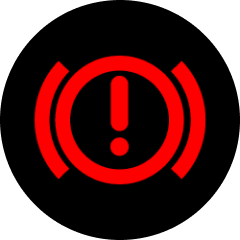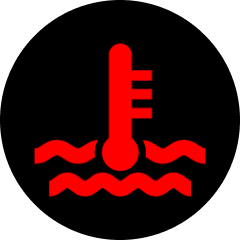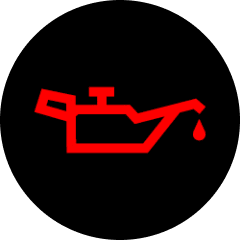Understanding the Importance of Toyota Warning Lights
As a Toyota owner, it's important to understand the meaning behind each warning light that appears on your dashboard. These lights are designed to alert you of potential issues with your vehicle, and ignoring them could lead to costly repairs or even safety hazards.
The Different Types of Warning Lights
There are various warning lights that may appear on your Toyota dashboard, each indicating a different issue. Some common warning lights include the check engine light, tyre pressure warning, and battery warning. It's important to familiarise yourself with these lights and what they mean, so you can take the necessary steps to address any issues.
- Red warning lights - These are the most urgent and require immediate attention. These lights indicate serious issues such as low oil pressure, engine overheating, or brake system failure. If any of these lights appear, it's crucial to pull over and address the problem before continuing to drive.
- Yellow warning lights - These are less urgent but still require attention. These lights indicate potential problems with your vehicle's systems, such as the engine, transmission, or emissions. While you may still be able to drive your Toyota, it's important to schedule a service appointment as soon as possible to prevent further damage.
- Green or Blue Warning Lights - Green or blue warning lights are typically informational and do not require immediate action. These lights may indicate that a system is on or in use, such as cruise control or high beams. However, it's still important to refer to your owner's manual for a full understanding of these lights and their meanings.
Don't let warning lights on your Toyota go unnoticed. Use our guide to understand the importance of each light and take the necessary steps to keep your vehicle running smoothly. Remember, regular maintenance and prompt attention to warning lights can save you time and money in the long run.

The brake light
If the red brake warning light stays on after releasing the parking brake or illuminates while driving, it indicates a brake system malfunction. It may also mean low brake fluid or a malfunctioning Automatic Braking system, indicated by the illuminated ABS warning light. Do not drive with the brake system warning light on. The brakes are crucial for safety, so take immediate action when you see this warning light. Pull over and stop as soon as possible if the red brake warning light comes on while driving. If you are not familiar with checking brake fluid levels, it is recommended to seek professional assistance and get a member of our team to take a look for you!

Overheating warning light
If the coolant is low and the engine is overheating, a light will come on. This may be due to a system leak or a larger issue, like a head gasket failure. If the light is red, stop immediately. Insufficient coolant in your Toyota can cause severe engine overheating and irreparable damage. Wait for the engine to cool down before checking the gauge on the coolant tank under the bonnet. Add coolant if needed, If no leaks are found and the light goes off after adding coolant, you can continue your journey. If the light comes back on again after adding coolant, have it checked to address the underlying problem.

Oil light
The oil warning light comes on when the oil temperature is too high or the oil level or pressure is too low. If the oil doesn't lubricate the engine effectively, it could cause expensive or irreparable damage. Act quickly by stopping the car and turning off the engine. Look for oil leaks and check the oil levels. If the oil levels are fine and the light goes off after topping up, you can continue your journey. If the light comes back on, get it checked at a Motor Match garage to fix the issue.

Battery Light
If the battery light comes on while driving, it indicates that the alternator is not generating electricity, causing the car to rely on battery power. This could be due to various issues with the electrical system, including a faulty alternator, battery, connection, or wiring. Your car will operate normally until the battery is dead, but once it is drained, none of the car's functions will work. Therefore, it is crucial to promptly visit a garage before the battery runs out.
Contact us today if your warning lights are flashing
If you have any sort of warning light flashing on your Toyota dashboard, the best thing to do is get in touch with us today so we can get to the bottom of the problem. The sooner the vehicle is checked, the quicker any potential issues can be rectified so that you do not need to worry about any safety issues or expensive problems later down the line.
